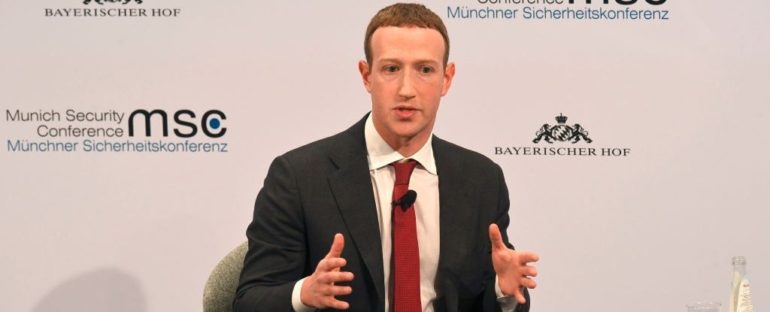In a significant move, Facebook has announced it will remove any misleading claims and misinformation about the COVID-19 vaccines from both Facebook and Instagram.
It’s part of a broader move to help combat fake news about the pandemic. Since December, the platform has been removing claims about the coronavirus that have been debunked by health experts.
But on Monday, the company expanded this policy and are now specifically targeting common anti-vax claims.
“Today, following consultations with leading health organizations, including the World Health Organization (WHO), we are expanding the list of false claims we will remove to include additional debunked claims about the coronavirus and vaccines,” Guy Rosen, Facebook’s VP of Integrity, wrote in a blog update.
This includes claims such as:
COVID-19 is man-made or manufactured
Vaccines are not effective at preventing the disease they are meant to protect against
It’s safer to get the disease than to get the vaccine
Vaccines are toxic, dangerous or cause autism
Facebook will also be removing fictitious claims that the vaccine will change people’s DNA or make them infertile, as well as false claims about where the vaccines are made or their efficacy.
But how do we know SARS-CoV-2 wasn’t made in a lab?
Researchers know that SARS-CoV-2 wasn’t lab-made because if it was, there would be evidence of manipulation in the genetic data.
Thousands of scientists all over the world have sequenced the genome of the virus that causes COVID-19 and made their results public, and there are no traces of the genome being modified by the tools we have at our disposal.
Are the vaccines safe?
While production of the vaccine has been fast-tracked, all the approved COVID-19 vaccines have gone through the same rigorous clinical trials in the lab, and also in humans, as any other vaccine on the market.
There is a plethora of safety data available on the vaccines, and while there are some rare people who may be allergic to an ingredient in one of the vaccines – which is the case with any medication – the results show the vaccines that are being approved for use are both safe for human use and effective.
But what about free speech?
The tech giant says it’s already taken down more than 12 million pieces of content on Facebook and Instagram, which contained “misinformation that could lead to imminent physical harm.”
And since April, the company has put warning labels on around 50 million pieces of content.
Facebook also announced on Monday that it would be giving non-governmental organizations (NGOs), UN agencies and health ministries US$120 million in ad credits to help spread COVID-19 vaccine and preventative health information.
“In 2021 we’re focused on supporting health leaders and public officials in their work to vaccinate billions of people against COVID-19,” Kang-Xing Jin, Head of Health at Facebook, wrote in a statement.
Of course, Facebook hasn’t always been so vigilant against misinformation. Studies have shown the social media company has been a vehicle for spreading fake news and fueling polarization.
But in the wake of the pandemic, and particularly since the Capitol riots on January 6, the platform has been more outspoken in its fight against misinformation.
Many people may see such moves as an attack on freedom of speech. But the reality is that much of what we see on social media is curated by fake accounts and bots, often created with the goal of seeding division and spreading misinformation.
In fact, a study led by Carnegie Mellon University in May last year found that between 45 and 60 percent of Twitter accounts sharing information on COVID-19 were likely bots. Many of these were spreading narratives that the US should reopen in the early days of the pandemic lockdowns.
To put that into perspective, during US and foreign elections, political events and natural disasters, bots usually make up around 10 to 20 percent of the discussion.
Social media researcher Jeanna Matthews from Clarkson University in New York last year discussed whether social media platforms such as Facebook should take more of a stand.
“Failure to act has often been justified with concerns about freedom of speech,” she wrote for The Conversation.
“Does freedom of speech include the right to create 100,000 fake accounts with the express purpose of spreading lies, division and chaos?”
You can read the full list of COVID-19 claims Facebook will no longer allow on the platform here (note: some people are reporting that Facebook hasn’t rolled out the new guidelines for them as yet, so it may be a gradual process).



